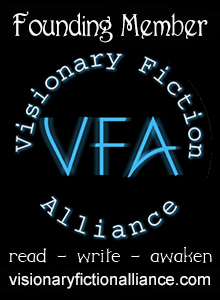
I’m happy to introduce Phil Bond as a returning guest on my blog. He was one of my critique partners for years and specializes in nonfiction and short stories. Today he wants to share his view on why we write. Phil wrote this essay on January 9, 2011, one day following the tragic shooting in Tucson on January 8, which explains why some of the details known by now may be incorrect or missing in this work.
Why We Write
We feel we have something to say, something unique and important. And it’s true. Nobody else has my experience, my eyes and ears, my voice. But a calling to write requires more. It requires a belief that what we share with others through the written word will somehow make the world better. We must feel that our words will bring people together, not push them apart.
A tragic incident in Tucson on January 8 involved a gunman who was mentally unstable, without question. Based on witness reports, his main target was U.S. Rep. Gabrielle Giffords, who had been targeted previously by others. What is less clear is his motive, and why he targeted her and not someone else. Since he was captured and not killed, those facts may yet emerge.
Since Colonial days, our land has seen disagreement and debate over politics and policy. Most disputes have been settled without coming to blows, and without vitriol or rancor. In Congress, until recent years anyway, debaters used phrases like “the distinguished gentleman” to refer to their opponents, and it was common to see two men who had sparred verbally in the afternoon sitting down together for dinner and cigars in the evening. To use an overused phrase, they could disagree without being disagreeable.
Today we have politicians on both sides of the aisle saying to their opponents, in effect, “My position is the only correct one, and you are evil.” The media, ever more eager to cover conflict than to report amity, jump on this demonization of an opposite view and of the person who holds it. Some media elements, such as talk radio, seize upon these verbal blasts and amplify them. Unlike echoes in the natural world, the echo chamber of political media causes noise to get louder and louder.
Words do have power. Carelessly applied, or cynically chosen, words may be shrugged off by some as humor, or as harmless hyperbole. But not every listener is truly adult. Not all are mentally balanced. And someone, such as Jared Loughner in this case, will hear poisonous words and decide to act upon them in a way that was not literally intended by the speaker. Hateful words lead to despicable acts.
This brings me back to my original point. Why do we write? And when we write, what should we write and how should we write it?
What we write should suggest to our readers how to face life’s challenges in the most positive and productive way possible. Not in the form of a sermon or a polemic, our writing should be a window into our best opinion and experiences, expressed in story form. Our readers should finish one of our works refreshed and enlightened, eager to read more of what we have to say. We have advice we can share with the world, and we can frame it in fiction, with actual details changed to protect ourselves and others.
We write because we cannot stand by and let the world descend into chaos around us.
Thank you, Phil.
If you enjoyed this essay, you might want to read another work posted by Phil on this blog called Form in Fiction.


What we write should suggest positive and productive ways…I like that! All too often you see read someone's hot, hatred rantings. We all get mad period, but channeling your anger in a respectful fashion into a solution will elevate the hostility. I don't believe it will fix every problem, but it sure would be a whole lot better than what we see or read more times than not.
Hi Cathy. Thanks for stopping by and leaving a comment for Phil. I will pass it on to him.